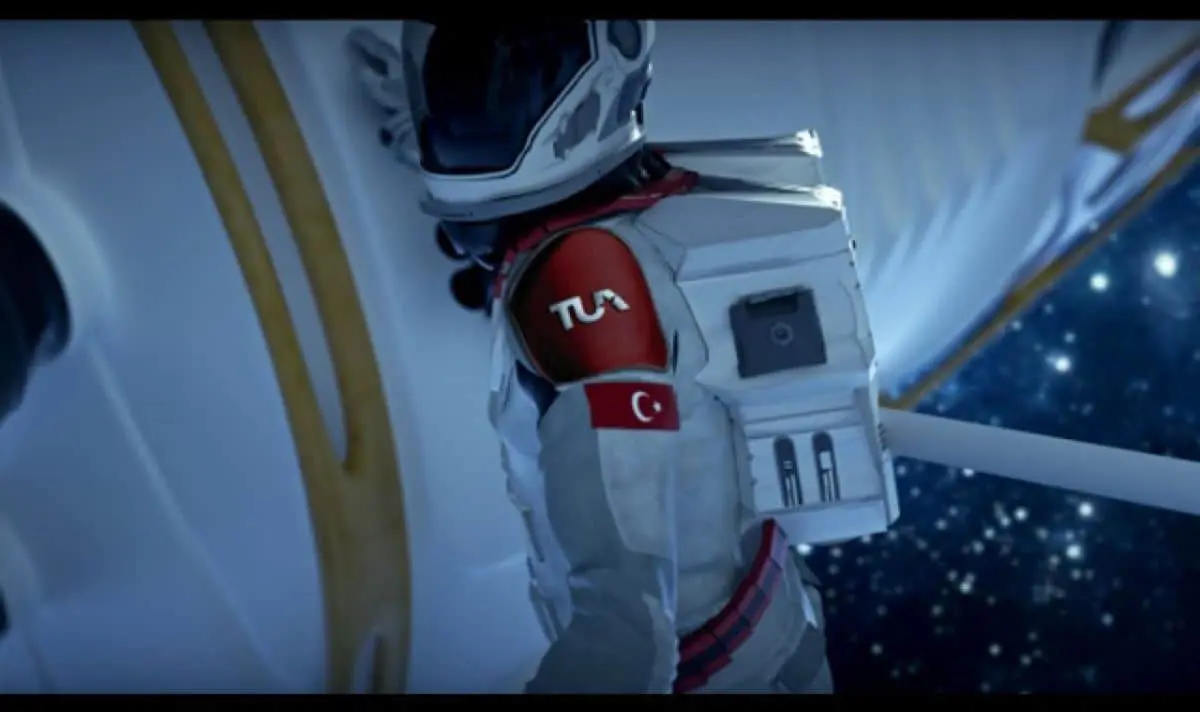Turkey continues to pursue its ambitious plans to become a space power and plans to send its first astronaut into space next year. Meanwhile, her ambitions seem to inspire even ordinary people – on the occasion of the International Day of Aviation and Astronautics on April 12, a chef from Adana sent a portion of kebab into the stratosphere with a helium balloon. Although many looked with scorn at his experience, which ended with the bursting of the balloon at a height of 35-40 km above the earth’s surface, the master kebab maker is determined to continue his “space” experiments.
However, it is not a joke that Turkey is rapidly moving towards achieving its goals in its ten-year space program, presented in February last year. The program outlines the country’s vision, goals and projects in space policies over the next ten years. It includes missions to the moon, sending Turkish astronauts on a space mission, and developing satellite systems.
The Minister of Industry and Technology Mustafa Varank announced these days that the requirements for the selection of candidates for space flight will be announced soon. Applicants will undergo a series of medical examinations and will have to meet a number of conditions, including not to use alcohol and cigarettes and not to have undergone major surgery in the past, CNN-Turk reported.
The head of the Turkish Space Agency (TUA) Serdar Hussein Yildirim told the Anatolian Agency that the first Turkish astronaut will be prepared by the end of this year and will be sent into space in the first half of 2023. The selection of candidates will continue around 2- 3 months and the training process between 4 and 6 months, Yıldırım said. The Turkish astronaut will leave on a scientific mission – he will be sent to the International Space Station, where he will stay for ten days, conduct scientific experiments and return.
Last year, Turkish President Recep Tayyip Erdogan called on citizens and linguists to come up with a Turkish word to replace foreigners such as astronauts, astronauts or tycoons, and among the most popular ideas are “turnaunaut”, “gokturk” ) and “Gokmen”, local media reported.
“The National Space Program will elevate Turkey to a higher league in the global space competition,” Erdogan said at the presentation of the ten-year program in February last year. “We will bring the success we have achieved in the defense industry to space,” he added.
However, sending a person on a space trip is by no means the only goal in Turkey’s space program. The country also plans to send a self-propelled vehicle to the moon in the coming years. The initial project has already been completed and the final one will be ready in June, Yildirim said. The device will be 70 percent locally produced and if there is no problem with the supply of parts from abroad, it is expected to be ready in late 2023 or early 2024, he added. The head of TUA predicts that Turkey’s first mission to the moon will take place in 2024.
Initially, Turkey planned to send a rocket to make a “hard landing” on the moon next year, on the centenary of the founding of the republic. However, as Yıldırım said, there will probably be some delay due to obstacles related to the pandemic and now the war in Ukraine. Sending a spacecraft to the moon will make Turkey one of only 5-6 countries in the world to achieve this, he said. The second stage of Turkey’s lunar mission is planned for 2028, when it is planned to make a soft landing on the moon with its own Turkish rockets.
Separately, in December, Turkey launched a new communications satellite with the SpaceX 9 Falcon 9 rocket, bringing the country’s number of satellites to eight. In January last year, the country sent another satellite – Turkksat 5A, and in the first months of 2023 will send into orbit the first fully produced in Turkey communications satellite – Turksat 6A. The project makes Turkey one of a dozen countries in the world that can produce its own satellite, Transport and Infrastructure Minister Adil Karaismailoglu said some time ago.
Moreover, the first observer satellite made entirely in Turkey – IMECE – is ready, Hussein Yıldırım, TUA’s director, said last week in an interview with IHA. This satellite is planned to be launched on January 15 next year.
The country is also planning to build a spaceport in co-operation with other countries, and is already working on the venture, which it intends to pursue with “fraternal, friendly and allied” countries, the TUA chief said.
“Not a luxury, but a necessity” – this is how the head of TUA described Turkey’s space plans, comparing the country’s space program with its successes in defense.
On the agency’s website we read the motto: “The place where the future begins”. It remains to be seen whether Turkey will really become such a place.
Photo: TUA







